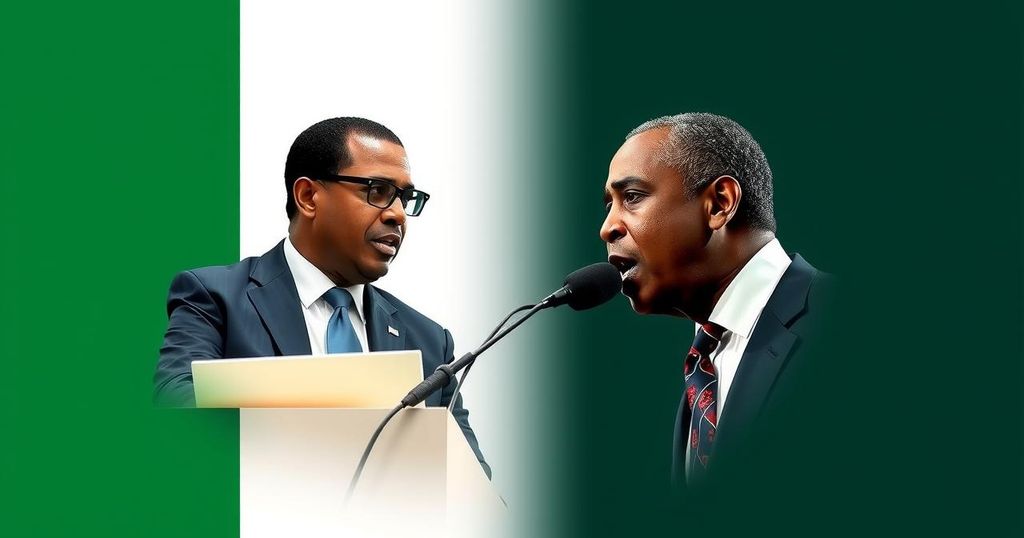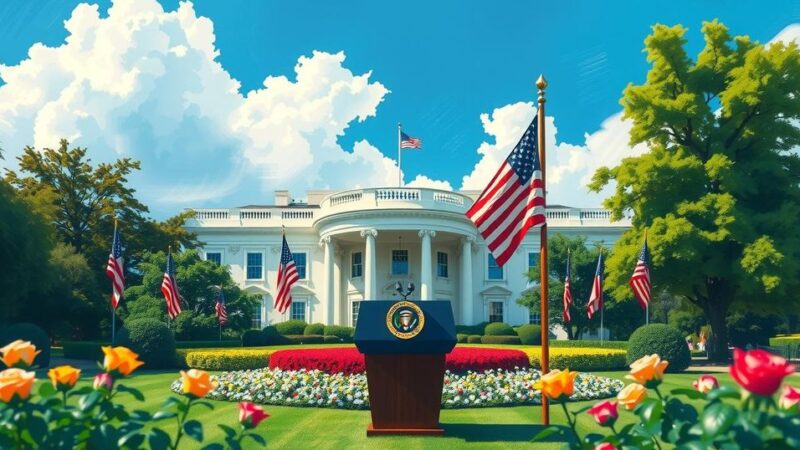The article provides a reflective analysis on the repercussions of the recent U.S. presidential election compared to Nigeria’s political landscape, particularly focusing on the emotional turmoil of supporting candidates that ultimately lose. It discusses the social divisions that arise post-election and emphasizes the need for humility and unity among political leaders to heal societal rifts.
The recent conclusion of the U.S. presidential election elicited mixed emotions among citizens, especially those whose preferred candidate lost. For many, acceptance of the election outcome is paramount. This sentiment resonates with me, as I have experienced similar political disappointments in Nigeria. Following the lost re-election bid of former President Goodluck Jonathan in 2015, I aligned with Peter Obi during the 2023 election against Bola Tinubu. Obis’ stance resonated with many voters hoping for change from years of perceived corruption under Buhari, which ultimately led to his defeat.
Despite efforts to foster a new political foundation, Obi’s loss was heartbreaking. The subsequent legal challenge he filed to contest the election results culminated in a dismissal by the Supreme Court. Consequently, Nigeria’s leadership now rests with Bola Tinubu, who has faced numerous accusations regarding his qualifications, just as Donald Trump faced similar scrutiny in the United States. Both scenarios reflect deeper societal issues related to governance and integrity.
After the election, Nigeria has faced worsening economic conditions under Tinubu’s administration, marked by soaring inflation and increased social tensions resulting from polarized electoral politics. These divisions have created an environment filled with vitriol, mirroring the partisan hostility seen in the United States during and after Trump’s election victory. The persistent battles fought online between supporters of rival candidates highlight a growing culture of divisiveness that remains detrimental to national unity.
Navigating a post-election reality is often traumatizing; however, a collective acknowledgment of shared humanity may pave the way for healing. Political leaders should strive for humility and foster cooperation among their constituents. The rhetoric of unity promised by leaders like Trump warrants scrutiny; citizens must discern whether such proclamations align with genuine efforts towards national reconciliation. Ultimately, the efficacy of leadership is determined not by empty promises but through palpable actions that promote peace and unity in society.
Political contexts differ greatly across nations, yet the emotional challenges following electoral outcomes appear universally familiar. In Nigeria, post-election scenarios often reveal deep-rooted social divisions exacerbated by ethnic and religious tensions. The electoral cycles are fraught with promises unfulfilled, leading to disenfranchised citizens who look for hope and change in newly elected officials. Observing the political landscape in the United States raises parallels, where issues of civic trust and electoral integrity similarly impact public sentiment. Understanding these dynamics is crucial to navigating the intricacies of new administrations and their implications on governance and public morale.
In conclusion, both Nigeria and the United States illustrate the complexities inherent in navigating post-electoral realities. The importance of humility from winning sides cannot be overstated, as it is essential for fostering an environment conducive to unity and reconciliation. Observers and citizens alike must critically assess the actions of their leaders against their promises, thereby holding them accountable for creating a society characterized by peace, respect, and collaboration among all citizens.
Original Source: baptistnews.com






